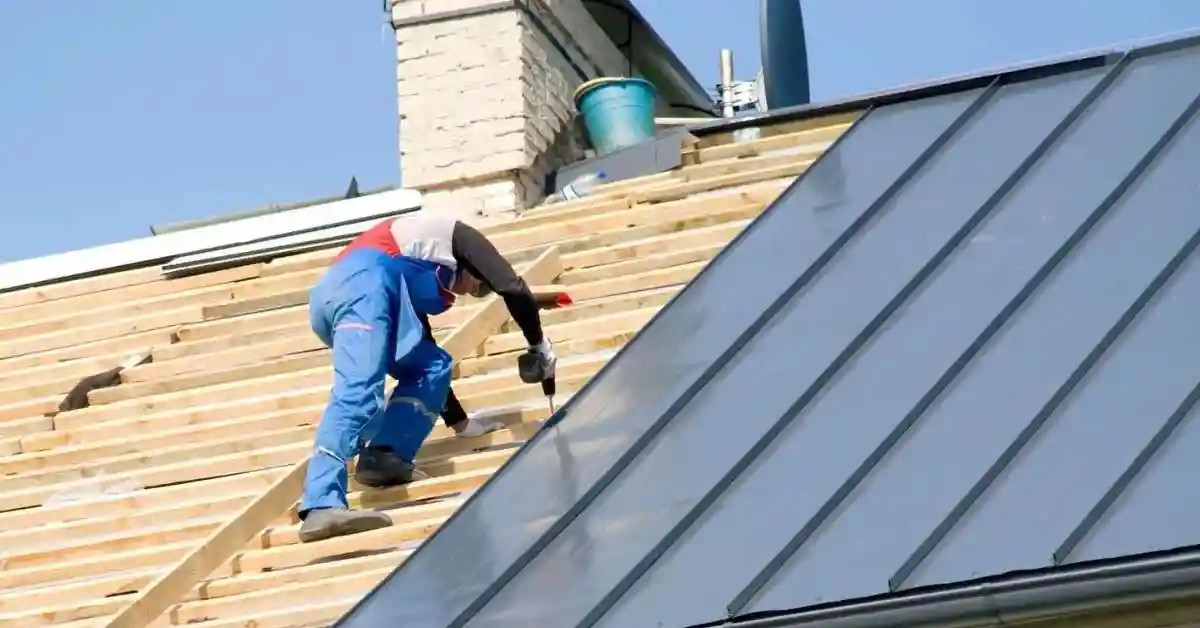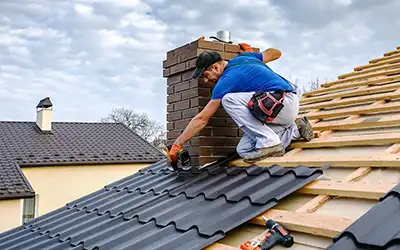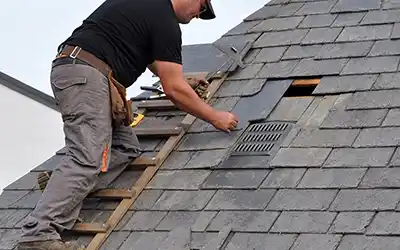
Introduction to Roof Repair Costs
As professional roofing experts, we understand the complexities involved in roof repair costs. Homeowners often find themselves overwhelmed by the variety of factors influencing the final price. In this comprehensive guide, we provide an in-depth analysis of the elements that affect roof repair costs, ensuring you have the information needed to make an informed decision.
Key Factors Influencing Roof Repair Costs
1. Type of Roofing Material
The choice of roofing material significantly impacts the cost of repairs. Different materials have varying prices, durability, and repair requirements. Here are some common roofing materials and their characteristics:
Asphalt Shingles: Asphalt shingles are the most common roofing material due to their affordability and ease of installation. They typically cost between $100 to $200 per square (100 square feet). They are durable but can be prone to damage from severe weather, requiring occasional repairs.
Metal Roofing: Metal roofing is known for its longevity and resistance to extreme weather conditions. It is more expensive, ranging from $300 to $700 per square. Metal roofs can last up to 50 years but may require specialized labor for repairs, adding to the cost.
Tile Roofing: Tile roofing, made from clay or concrete, is highly durable and can last for over 100 years. However, it is expensive, with costs ranging from $600 to $800 per square. The weight of tile roofs may also necessitate additional structural support, increasing repair costs.
Wood Shingles: Wood shingles offer a natural and aesthetically pleasing look but come at a higher price of around $400 to $700 per square. They require regular maintenance to prevent rot and insect damage, contributing to higher long-term repair costs.

2. Roof Size and Slope
The size and slope of your roof are critical in determining repair costs. Larger roofs require more materials and labor, directly increasing the expense. Steeper roofs are more challenging to work on, often necessitating additional safety equipment and time. These factors can substantially elevate labor costs, making repairs more expensive.
3. Extent of Damage
The severity of the roof damage plays a crucial role in the cost. Minor repairs, such as fixing small leaks or replacing a few shingles, are relatively inexpensive. However, extensive damage requiring structural repairs, replacement of large sections, or addressing underlying issues like water damage or mold can significantly increase costs. A thorough inspection is essential to accurately assess the extent of the damage and the associated expenses.
4. Labor Costs
Labor costs vary based on the complexity of the job and local rates. Specialized roofing materials, such as slate or metal, may require skilled labor, which is more expensive. Additionally, labor rates can fluctuate based on geographic location, with urban areas generally having higher rates than rural areas. It's essential to consider both the expertise required and the local market conditions when estimating labor costs.
5. Permits and Licenses
Depending on your location, permits and licenses may be required for roof repairs. These permits ensure that the work meets local building codes and standards. The cost of permits can vary widely, from $50 to several hundred dollars, depending on the scope of the project and local regulations. Failing to obtain the necessary permits can result in fines and complications, potentially increasing the overall cost.
6. Accessibility
Roofs that are difficult to access can increase labor costs due to the extra effort required to transport materials and perform repairs. Factors such as multi-story buildings, complex roof designs, or obstacles like trees and power lines can complicate access, leading to higher labor charges. Proper planning and consideration of these challenges are essential to accurately estimate repair costs.
Have a roofing business? Try our roofing contractor software
Average Roof Repair Costs by Type
1. Leak Repairs
Leak repairs are among the most common roofing issues. The cost to repair a leak typically ranges from $150 to $500, depending on the location and severity. Minor leaks can often be fixed quickly, but more severe leaks may require extensive work, including replacing damaged shingles, underlayment, and addressing any water damage to the roof structure or interior.
2. Shingle Replacement
Replacing missing or damaged shingles is another frequent repair. This can cost between $150 and $1,000, largely influenced by the type of shingles used and the extent of the damage. In cases where only a few shingles are affected, the cost is relatively low. However, if a significant portion of the roof needs replacement or if the underlying structure is compromised, costs can rise substantially.
3. Flashing Repairs
Flashing repairs are crucial for preventing water ingress around chimneys, skylights, and other roof penetrations. The cost usually ranges between $200 and $500. Flashing materials, such as aluminum or copper, must be properly installed and sealed to prevent leaks. Damaged or improperly installed flashing can lead to significant water damage, making timely repairs essential.
4. Gutter Repairs
Gutter repairs, essential for proper water drainage, typically cost from $150 to $400. Gutters direct water away from the roof and foundation, preventing damage. Common gutter repairs include fixing leaks, reattaching loose sections, and clearing clogs. Neglecting gutter maintenance can lead to water overflow, damaging the roof, walls, and foundation.
Cost Breakdown by Roofing Material
Here is a detailed cost breakdown by common roofing materials:
Asphalt Shingles
Asphalt shingles are popular due to their affordability and ease of installation. They offer good protection but may require more frequent repairs compared to other materials.
- Minor Repairs: $100 - $200
- Major Repairs: $200 - $500
Metal Roofing
Metal roofing is durable and long-lasting but comes at a higher initial cost. It is resistant to severe weather and requires less maintenance.
- Minor Repairs: $300 - $500
- Major Repairs: $500 - $1,000
Tile Roofing
Tile roofing is known for its longevity and aesthetic appeal. However, it is heavier and more expensive, requiring additional structural support.
- Minor Repairs: $400 - $600
- Major Repairs: $600 - $1,200
Wood Shingles
Wood shingles provide a natural look but require regular maintenance to prevent rot and insect damage. They are more expensive and labor-intensive to repair.
- Minor Repairs: $300 - $500
- Major Repairs: $500 - $1,000

Tips for Reducing Roof Repair Costs
1. Regular Maintenance
Regular maintenance can prevent minor issues from becoming major repairs. Schedule annual inspections and cleanings to keep your roof in optimal condition. Regularly check for signs of damage, such as loose or missing shingles, leaks, and debris buildup. Promptly addressing these issues can extend the life of your roof and reduce long-term costs.
2. Prompt Repairs
Addressing small problems immediately can save you from costly repairs in the future. Do not ignore minor leaks or damage. Small leaks can quickly escalate into major issues, causing structural damage, mold growth, and interior damage. Early intervention can prevent these problems and keep repair costs manageable.
3. DIY Minor Repairs
For those comfortable with DIY projects, minor repairs like replacing a few shingles or clearing gutters can save on labor costs. However, ensure safety and proper techniques. DIY repairs can be effective for simple tasks, but more complex issues should be handled by professionals to avoid further damage and ensure proper repairs.
4. Obtain Multiple Quotes
Before committing to a roofing contractor, obtain multiple quotes to compare prices and services. This can help you find the best value for your money. Request detailed estimates that outline the scope of work, materials, labor, and any additional costs. Comparing quotes can also help you identify any discrepancies or potential red flags.
Conclusion
Understanding the factors influencing roof repair costs and the average expenses involved can help homeowners budget effectively and make informed decisions. By maintaining your roof and addressing issues promptly, you can extend its lifespan and minimize repair costs.
